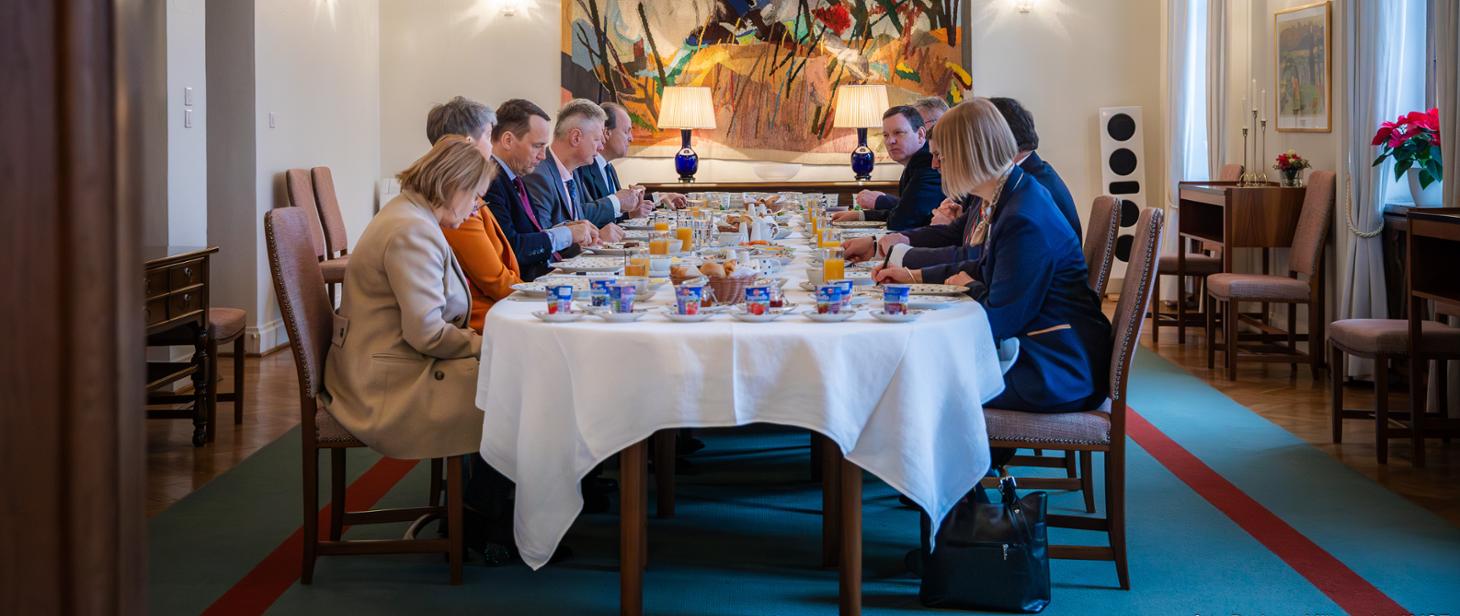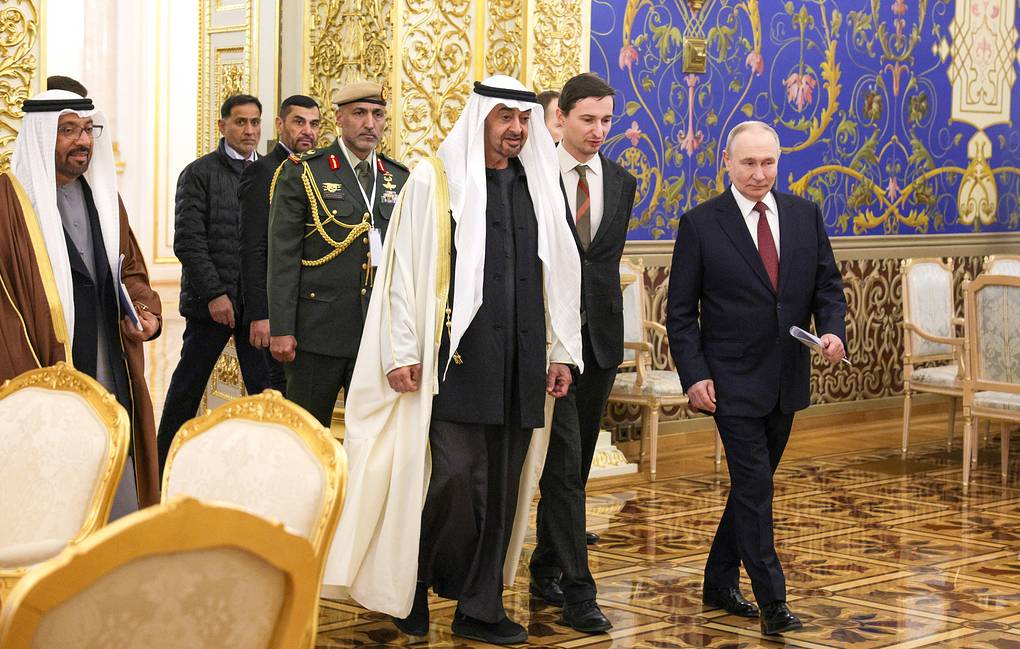MINGRELIA: GEORGIA’S NEW “HOT SPOT”?
MINGRELIA: GEORGIA’S NEW “HOT SPOT”?
By Igor Rotar
In April, the situation in Mingrelia (the Black Sea region of western Georgia that borders Abkhazia) heated up again. It all began when Georgian special operations troops surrounded the house where Gocha Esebua — who had taken members of the UN observer mission in Abkhazia hostage — was hiding out with his supporters. According to the Georgian government, Esebua was killed while attempting to escape, and his remaining supporters surrendered their weapons.
The fact that Esebua was killed on March 31 (birthday of Zviad Gamsakhurdia, Georgia’s first democratically-elected president, and the date on which the referendum on Georgian independence was held seven years ago) could not fail to incite the “Zviadists,” as Gamsakhurdia’s supporters are known. (1) Esebua’s funeral turned into a Zviadist demonstration. Close to a thousand people came to pay their last respects. The coffin was followed by a horse, covered by a black felt cloak. The crowd carried placards saying that they were burying a true knight.
Mingrelia is the stronghold of the armed groups that remain loyal to Gamsakhurdia. Since Gamsakhurdia was ousted from power in January 1992, President Eduard Shevardnadze has had to send troops to Mingrelia four times to put down Zviadist uprisings. The largest took place in 1993, when Gamsakhurdia returned to Mingrelia from refuge in Chechnya. The rebels took control of all of Mingrelia. From there, they threatened to take Georgia’s second largest city, Kutaisi, before marching on to Tbilisi. But the Kremlin came to Shevardnadze’s aid: under the pretext of defending the railroads, Russian troops gave Georgia’s government covert but active support and the Zviadist uprising was suppressed. Gamsakhurdia himself died in mysterious circumstances in the village of Dzhikhashkari.
The loyalty of Mingrelia’s inhabitants is explained by the fact that Gamsakhurdia was a Mingrelian. The Mingrelians are closely related, ethnically and culturally, to the Georgians but they have been linguistically distinct since the eighth century. They not only have different customs from other regions of Georgia, but also speak a language that is related to Georgian but is syntactically quite different. Until the 1930s, Mingrelians were considered a separate ethnic group; after that they were officially classified as Georgians.
During the war in Abkhazia, Abkhazian scholars tried to prove that the Mingrelians are a people in their own right. Although that attempt failed, friction continues between Georgia’s various ethnic groups. During the Zviadist uprising of 1993, fighters from the “Mkhedrioni” (Horsemen — one of Georgia’s main paramilitary groups who fought on Shevardnadze’s side) engaged in looting, justifying their actions in conversations with Prism’s correspondent by saying that they weren’t robbing “real” Georgians — just Mingrelians.
The events of the last few months have again attracted attention to Mingrelia. There are rumors that there will soon be a new Zviadist uprising in the region.
At first glance, there seems good reason for such fears. Koba Matakheria, deputy chairman of the Zugdidi branch of Georgia’s Ministry of State Security, told Prism that, of five terrorists currently in custody in connection with the assassination attempt on Shevardnadze, four were natives of Mingrelia. Of nine suspects who are still at large, six are from Zugdidi. According to the Georgian authorities, the plot against Shevardnadze was laid in Mingrelia.
But this hypothesis is not watertight. It is quite likely those who organized the terrorist attack worked out their plan somewhere else and used Mingrelia only as a base. Gocha Esebua arrived in Zugdidi shortly before the attack against Shevardnadze. Before that, he had not been in his native city for several years. According to eyewitnesses, he was well-dressed and had plenty of money. He told his neighbors he had been living outside of Georgia for the last few years. In Zugdidi, Esebua bought two mobile telephones and registered them under false names; these telephones were later used in the attempt on Shevardnadze’s life. Before the attempt, Esebua left Georgia and did not return until a few days before the kidnapping of the UN observers.
Members of the family of the mayor of the village of Dzhikhashkari (in whose home the hostages were held) told Prism’s correspondent that Esebua was the only one of the conspirators who gave the impression of being a professional. Once Esebua had fled, his accomplices were unable to prevent the escape of the only remaining hostage — a Czech officer.
“The seizure of the hostages was really a forced measure on our part. Ever since we lost the war, [the Zviadist uprising of 1993 — IR] we have had to hide from the police and the KGB. The latest attempt on Shevardnadze’s life made our position even more unbearable: a real hunt was launched for us. At that moment, Gocha Esebua appeared in Zugdidi, and proposed that we take hostages. Since we understood that, sooner or later, they’d catch us anyway, we supported his idea,” Zurab Shonia told Prism two weeks before his death.
According to Shonia, most of the Zviadists hid in the forest with their weapons not because they wanted to continue the fight, but because they feared arrest. Not only the Zviadists who refused to disarm, but even peaceful residents who did not conceal their sympathies for Georgia’s first president, were subjected to repressions. After the release of the hostages in Dzhikhashkari, however, Georgia’s government declared an amnesty for all Zviadists who laid down their arms voluntarily, and most members of armed groups responded to the government’s offer. “The voluntary disarmament of Zviadists has exceeded our most optimistic expectations,” Matakheria told Prism.
This did not take place because Mingrelians shifted their sympathies to Shevardnadze; Gamsakhurdia remains as popular as ever in western Georgia. From all indications, however, few there are now ready to defend his ideas with guns in their hands. Paradoxical though it may seem, one of the main reasons for this passivity is the disastrous economic situation in Georgia.
Before perestroika, the standard of living in Georgia was one of the highest in the USSR. But the quality of life was determined, not by official production, but by the “shadow economy,” which was not taxed and was often linked to the criminal world. “I used to be the chief engineer at a tea plant. Of course, we falsified the records and sold tea under the counter. I never earned less than three thousand rubles a month. I used to fly to Moscow on weekends to go to restaurants. Now, I consider myself fortunate if I eat meat once a week,” Vakhtang, a refugee from Abkhazia, recalls nostalgically. Prism’s correspondents heard many such statements.
While the residents of the republic were able to adapt wonderfully to “business” under Soviet conditions, only a few have been able to adapt to a real market economy. A monthly income of $100, with prices comparable to those in Russia, is considered quite decent here. Beggars have appeared on the streets of Georgian cities; prostitution is flourishing — from the point of view of the national psychology, both these things are an unprecedented disgrace. There are also problems in everyday living conditions: the electricity works for only a few hours a day; buildings are not heated; and people have long ago forgotten about such luxuries as hot running water.
But the difficult economic situation has not led to dissatisfaction with the government; on the contrary, it has led to political apathy. The national euphoria of the first years of independence has practically disappeared today. The man in the street no longer believes that he can exert any real influence on the political and economic situation in his homeland. Georgians are more interested in finding the means of subsistence than in who will be the republic’s next president.
In Mingrelia, local inhabitants have their own specific problems. During the civil war, virtually every city and village through which government troops passed was subjected to looting, the consequences of which are felt to this day. As Prism’s correspondent can attest, homes destroyed during the civil war can be seen everywhere, even today. “If a war begins and the government troops come back here, the looting will start again. We are tired of endless wars and are ready to make peace with any government, as long as it doesn’t prevent us from earning a crust of bread,” Zugdidi residents told Prism’s correspondent.
New incidents in western Georgia cannot of course be ruled out, but there seems little doubt that Shevardnadze will keep the situation under control. From all indications, the “gray fox,” as they call Shevardnadze in Georgia, has been very successful in splitting the Zviadists. By declaring an amnesty for Zviadists who disarm, Shevardnadze will most likely neutralize most of his opponents. The irreconcilable wing of the Zviadists has, in the president’s words, been transformed into a terrorist organization, and there seems little doubt that Shevardnadze will be able to neutralize that, as well.
Zugdidi-Dzhikhashkari-Tbilisi-Moscow
NOTES:


